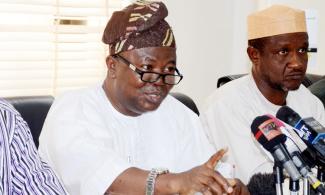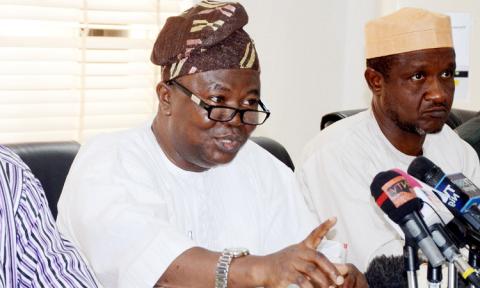
The government has also been asked to shelve its planned reopening of schools as disclosed by the Presidential Task Force on COVID-19 last week.
The Nigerian Government has been asked to reverse the new pump price of petrol and electricity tariff.
The government has also been asked to shelve its planned reopening of schools as disclosed by the Presidential Task Force on COVID-19 last week.

The government had last Thursday announced an increase in the price of Premium Motor Spirit also known as petrol from N145 per liter to N151.56 per litre.
Also the same week, the Nigerian Electricity Regulatory Commission issued a new electricity tariff from N30.23 per kilowatts to N62.33 per kilowatts of energy.
These increases have raised concerns about imminent inflation and spike in the prices of essential commodities in the country.
As of now, inflation rate is double digit with prices of foodstuffs and other essential commodities hitting record highs.
In its response, the Academic Staff Union of Universities on Monday in Yola, Adamawa State, charged the Nigerian Government to reverse the increases immediately.
Arising from its zonal meeting, ASUU's Coordinator for Yola Zone, Prof Augustine Ndaghu, said the hike was insensitive to the plight of poor citizens.
He said, "It is common knowledge that COVID-19 has wrecked havoc on socio-economic activities globally.
"Consequently, most nations have responded by providing palliatives and succour to citizens to reduce the hardship induced by the pandemic.
"However, reverse is the response in our country as citizens are meted with high tax burden, increased electricity tariff and pump price of petroleum products among others."
On government's plans to reopen schools, the ASUU Coordinator insisted that Nigerian universities lacked the required infrastructure for the observance of COVID-19 protocols.
He said, "In Nigeria public universities as at today, facilities for strict adherence to the provisions of COVID-19 protocol are grossly inadequate as hostel accommodation, lecture theatre and classes available when compared to the students' population only make a mockery of the social distancing requirement."
He noted that the outbreak of the pandemic had brought to the fore challenges bedeviling the health and education sectors in the country.
He posited that if government had appropriately implemented the 2012 needs assessment report, which identified the rot in the country's public universities, by now the institutions would have been involved in developing solutions to the virus.